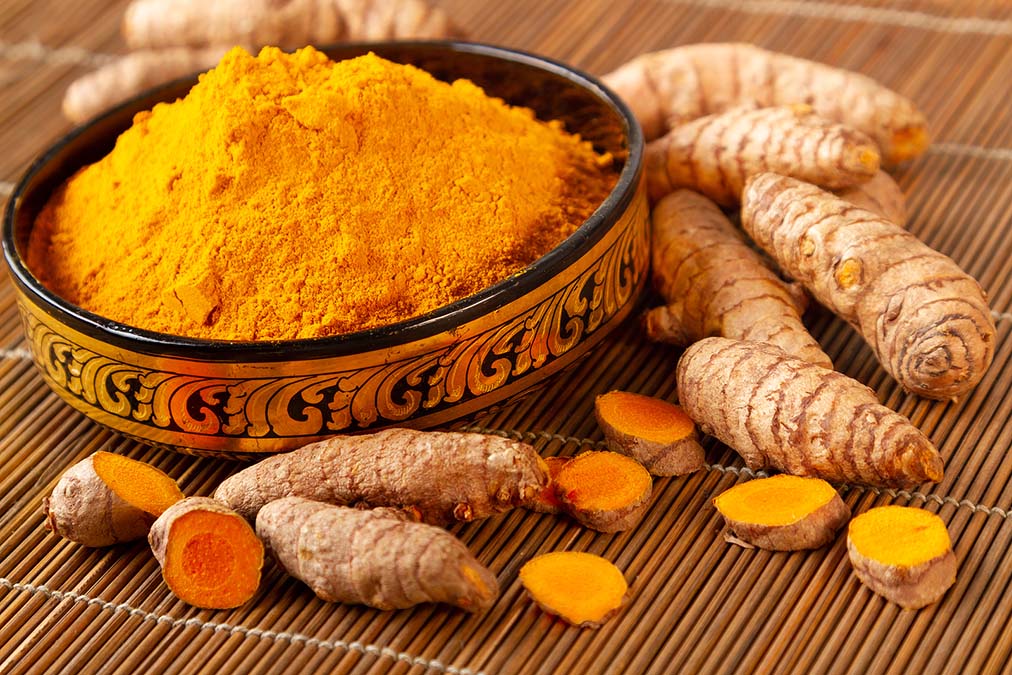 Thousands of years ago, ancient societies already identified this spice as a treatment for gout.
Thousands of years ago, ancient societies already identified this spice as a treatment for gout.
But unlike some other age-old treatments for gout, there is a surprising amount of research that shows that this spice actually works.
The latest in the long list is a 2019 study in the journal Arthritis Research & Therapy.
The most active substance in turmeric is called curcumin, and this is the ingredient through which scientists believe turmeric exercises its beneficial effects.
The researchers took mouse cells most involved in their version of gout and applied curcumin directly to them.
It suppressed a protein called nuclear factor-kappa B (NF-kappa B) inside these cells. This protein plays a massive role in all inflammatory conditions, including gout.
When scientists injected it straight into the mice affected by gout or the mice that had elevated uric acid, which is the prime cause of gout, the curcumin blocked the inflammation that would usually be called gout.
In 2013, the Open Journal of Rheumatology and Autoimmune Diseases published a study in which scientists examined the records of 116 gout sufferers who had been given a curcumin extract.
They found that the extract had improved their subjects pain within 24-48 hours and that the gout attacks were completely halted in most cases, probably because of the extract’s ability to reduce inflammation, according to the researchers.
Another study in BMC Complementary and Alternative Medicine in 2018 found that a curcumin supplement could alleviate joint pain.
After three months, the subjects suffered less joint pain and stiffness and could use their joints more effectively. This study was strong, since it gave a second group of subjects a fake treatment to make sure that the real treatment worked and the fake treatment did nothing.
These are just three examples of the amazing effectiveness of curcumin on top of thousands of years of experience in the natural field.

 Overcoming IBD
Overcoming IBD Multiple Sclerosis
Multiple Sclerosis Banishing Bronchitis
Banishing Bronchitis Gum Disease Gone
Gum Disease Gone Overcoming Onychomycosis
Overcoming Onychomycosis Neuropathy No More
Neuropathy No More The Prostate Protocol
The Prostate Protocol Brain Booster
Brain Booster
 Ironbound
Ironbound
 Solution for Shingles
Solution for Shingles
 The Bone Density Solution
The Bone Density Solution
 The Ultimate Healing Protocol
The Ultimate Healing Protocol
 The Parkinson's Protocol
The Parkinson's Protocol
 The Chronic Kidney Disease Solution
The Chronic Kidney Disease Solution
 Overthrowing Anxiety
Overthrowing Anxiety The Fatty Liver Solution
The Fatty Liver Solution The Hypothyroidism Solution
The Hypothyroidism Solution
 The End of Gout
The End of Gout The Blood Pressure Program
The Blood Pressure Program
 The Oxigized Cholesterol Strategy
The Oxigized Cholesterol Strategy
 Stop Snoring And Sleep Apnea Program
Stop Snoring And Sleep Apnea Program
 The Arthritis Strategy
The Arthritis Strategy The Vertigo & Dizziness Program
The Vertigo & Dizziness Program The 3-Step Diabetes Strategy
The 3-Step Diabetes Strategy Hemorrhoids Healing Protocol
Hemorrhoids Healing Protocol The Erectile Dysfunction Master
The Erectile Dysfunction Master Weight Loss Breeze
Weight Loss Breeze The IBS Program
The IBS Program The Insomnia Program
The Insomnia Program The Migraine and Headache Program
The Migraine and Headache Program The Neck Pain Solution
The Neck Pain Solution The Menopause Solution
The Menopause Solution The Ejaculation Master
The Ejaculation Master The TMJ Solution
The TMJ Solution The Acid Reflux Solution
The Acid Reflux Solution The Fibromyalgia Solution
The Fibromyalgia Solution The Psoriasis Strategy
The Psoriasis Strategy